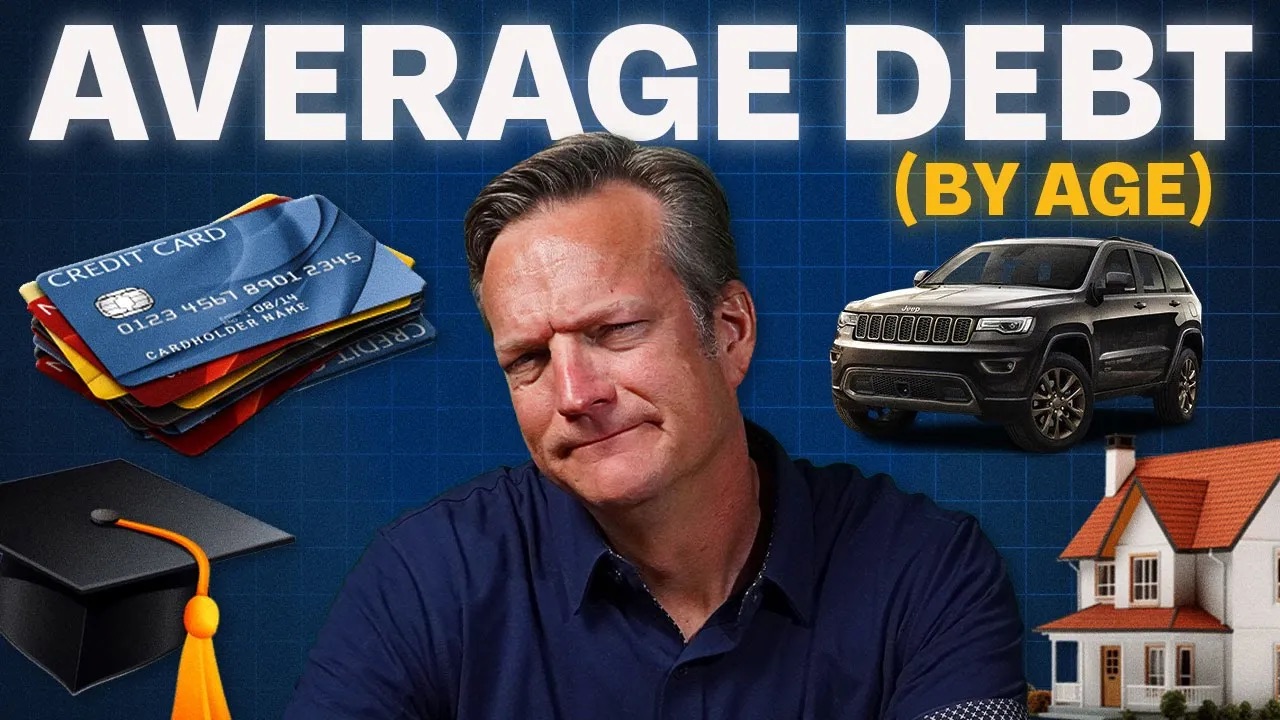So we've talked about small percentages, right? We had like nine percent of folks who inherit their wealth and seven percent that are virtuosos. And then we just talked about the executives, that was 17 percent. But you might have noticed, none of these are big percentages. No, like, okay, so who are these wealthy people? Who are the folks you're talking about? How do rich people get rich? How do wealthy people build wealth? It seems that there's a huge gap, there's something missing, there's something you've not said, some strata of folks that we've not uncovered. And you'd be right because the fifth one, I think, is the one that's the most exciting, and this one is the one that we just call the saver and the investor.
Yeah, this one's exciting to me because I tell people all the time, becoming wealthy is so simple. Now don't mishear me, I did not say it's easy. I mean, because we've seen most people are not willing to practice the discipline to actually live on less than they make, make the good decisions. But it does make me excited when our own research shows 67 percent of the millionaires we work with, their big break, their poor where they pierced into becoming wealthy, crossing into seven figures, was because of their behaviors of being a saver and an investor. That ought to be excitement, that ought to be kindling to set the fire on your life to start doing this for yourself as well. What I think as well is when you think back to the book that Dr. Stanley, Dr. Danko wrote, The Millionaire Next Door, they uncovered this same thing. They recognized, hey, when we talk to the real millionaires out there, it's not the folks that are living in the Hills, it's the folks that are living next door. What's really great is they uncovered some common traits or factors among these people, and we've seen this play out in our own study, we see this with our clients. They live below their means, they recognize how to allocate their time, their energy, and their money efficiently, they're not wasteful. They recognize that financial independence and saving for a great big beautiful tomorrow is more important than social status today and looking like I'm wealthy. Their parents did not reach down and provide economic outpatient care to them, nor are they providing economic outpatient care to their kids. They're teaching their kids how to make wise financial decisions. They recognize market opportunities and take advantage of them, and in a lot of cases, they chose the right occupation. They recognized, hey, if I'm going to be working for a living, I might as well do something that I love, that I'm passionate about, that is marketable, that I can build wealth doing. Those are common threads that were spread throughout there, and what the fees folks did is they took those things and they saved and invested over the course of a lifetime. Um, I feel very fortunate. Look, I'm sad because she's now left the house, but I think it's a great learning opportunity having a daughter who's in college, and we have conversations, and I can just see the light bulbs going off in her head. And I had the same realization. This is going to sound a little bit out there, but you'll understand what I'm saying is that she'll tell me about somebody who's struggling with something or something's going on, and I was like, do you see where the problem lies? And it's really that incremental decision making that people will make, and she'll have somebody who'll done something else.
The earlier you start, the more powerful your dollars can be. Even if you didn't start 20 years ago, that's okay. The absolute best time to start investing was yesterday, which means the second-best time is today. If you don't believe us, once you go to
moneyguy.com/resources, check out this
wealth multiplier. Take this, put it up on your bathroom mirror, put it up on your refrigerator, maybe fold it up, put it on top of your credit card slot in your wallet so that every time you pull out that credit card, you say, "Oh man, do I really want to spend this money?" Because I know as a 25-year-old, every dollar that I invest could turn into 44 dollars for me in the future. The sooner you can recognize this get-wealthy behavior, the sooner you can make your money start working even harder than you do. And it doesn't take a lot. I shared with you guys my big inspirational point when I had an economics teacher tell me if I could just save a hundred dollars a month, I'd be a millionaire. It just lit me a fire of "holy cow, something that I thought was just impossible is now sitting right in front of me." It created kind of an inevitable wealth situation. This is what I shared earlier, and I feel a little guilty about it because I picked on how bad the public is, but that how bad the typical person is with money is an actual opportunity for you to essentially coach yourself to not fall into the traps that everyone else is and actually just take a little bit of today. I'm talking about an incremental small decision. I don't care if it starts off at fifty dollars a month, just do something. If you can make one small incremental decision today, you'll really be setting up that great big beautiful tomorrow. And then as you're doing this, like you figure that out, as you start making these incremental decisions, make sure you have a plan in place for how you're going to do that.
We think that a great way to do that is to maximize and optimize the
Financial Order of Operations. Nine steps tried and true to walk you through what you should do with your dollars, so it's not a guessing game. "Oh, I just got a raise at work. What should I do?" Okay, are your debts covered? Are you getting your employer match? Have you paid off your high-interest debt? You can literally work through these nine steps so they don't have to guess anymore so you can focus on the things that you want to focus on. If you can do this steadily over a lifetime, over a career, over a working period, you're going to be amazed at what it turns into. Brian, you say this all the time. I'm going to steal one of your quotes, and I'm sorry for stealing it. We so often fall into the world of thinking linearly. Yeah, I'm here today. I want to be here tomorrow, linearly. So often in our lives, we can put systems like this in place, the growth is exponential. And I know that you and I have both ended up in a place today we never thought we'd be in. We never ever thought we'd be in. And it's because of those small little behaviors we both started doing, some of us longer ago than others, and just kept doing through time. Well, I would encourage you to make it inevitable because that's the thing because human nature, we overcomplicate things. And if I could encourage you, make your path to wealth and success as easy as possible. You know how you do that? Make it automatic. Just go ahead and set up monthly investments.
I wish somebody had told me this from an earlier time because, as you transition from kid to an adult, it takes a while for you to realize most adults are bad at being adults. They're bad with money - it's true - bad with their life decisions. They don't do the right things, and there's stats behind this. I saw this was interesting: 90 percent of the public is just straight up bad with money. Look at 60 percent of Americans who make less than 60 Grand, by the way. Another stat that's not on this tweet that I'm reading off of is 60 of Americans can't come up with it, so I mean, I could rest the case on that. 82 percent of Americans make less than 100 grand. 92 percent of Americans make less than 150 Grand. Twitter's not real. The big thing I want to focus on, and I'm not saying you have to have, because the actual research says you don't have to have a big income to create wealth, that's what saving and investing. I think it just shows you that a lot of what you put out there on social media is completely flexing, it's false, it's trying to drive you towards consumption versus being a builder of wealth, and that's the point I was trying to teach my daughter when we had a discussion. Don't let somebody try to plant the seeds of you need to have that nice car, you need to have the nice clothes, no, you need to focus on how do you challenge yourself, how do you choose the right major in college, how do you set yourself - all those seven traits that The Millionaire Next Door shared is the exact type of things that can take two boys who didn't have a ton of money, started at zero from South Atlanta, to where we now do have success and get to share that. I think this is an inspirational story, and anyone can do it. I don't care where you come from, I don't care what your background is, I don't even care what your income is, if you start early enough, you can be a success.
That's what I love about this fifth category of Wealth Builders, it is literally available to anyone, it's available to anyone no matter how young you are, how old you are, how smart you are, how dumb you are, how talented you are, how untalented you are. If you can exercise these behaviors, you have the ability to control your future, you have the ability to set yourself up for success. So there are some tips and tricks that we want to share with you to maybe make it a little bit easier. The first one, Brian, I love this because you talked about this in show prep and you went long on this, you said you've got to enter through these, what you called, get-wealthy behaviors. What do you mean by that? What are get-wealthy behaviors? Let's see: make hence discipline, turning that discipline into margin that gets invested, your army of dollar bills, that's the money, and then taking that money and actually giving enough time to grow. I mean that that is what creates success, those are get-wealthy behaviors, is just letting your money do the hard work, and I think that what's so great is your money doing the hard work is the exciting part about it. If you can start saving early - I mean, let me change my language here - if you can start investing as early as possible, oh Bo, I'm 35 years old, okay, start investing. Oh, but Bo, I'm 46 years old, okay, start investing. The earlier you start, the more powerful your dollars can be.













